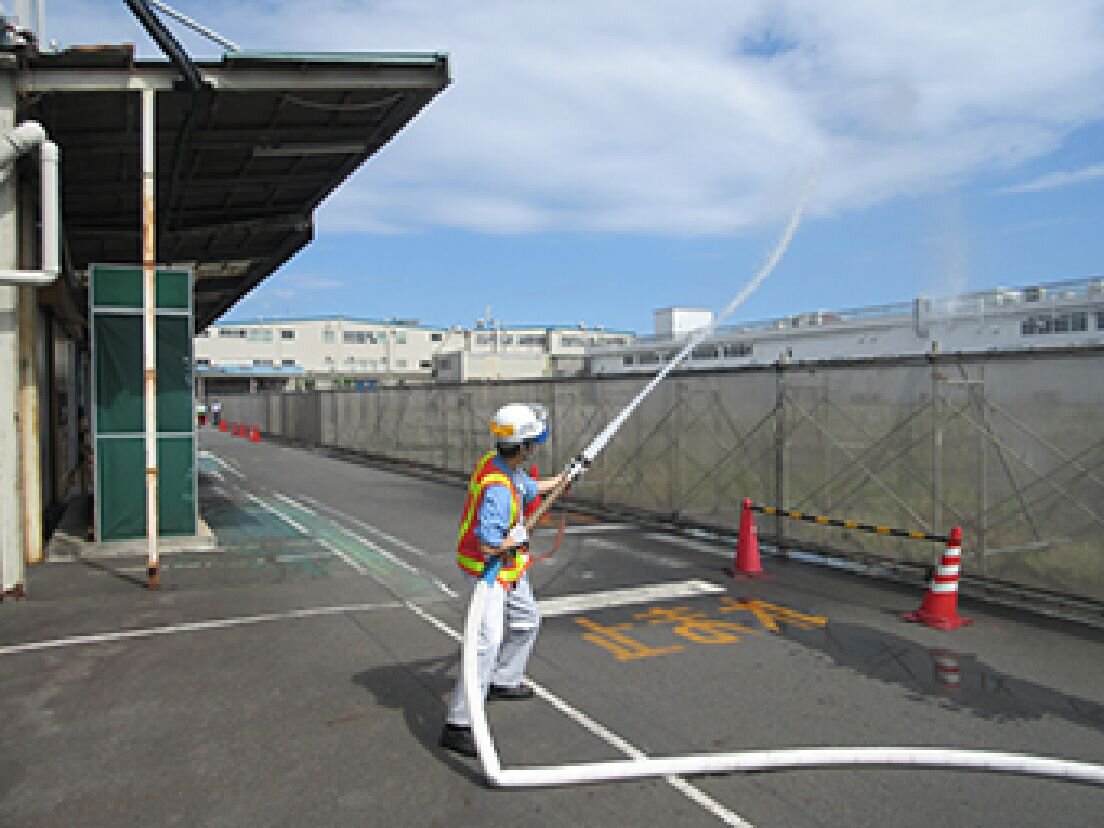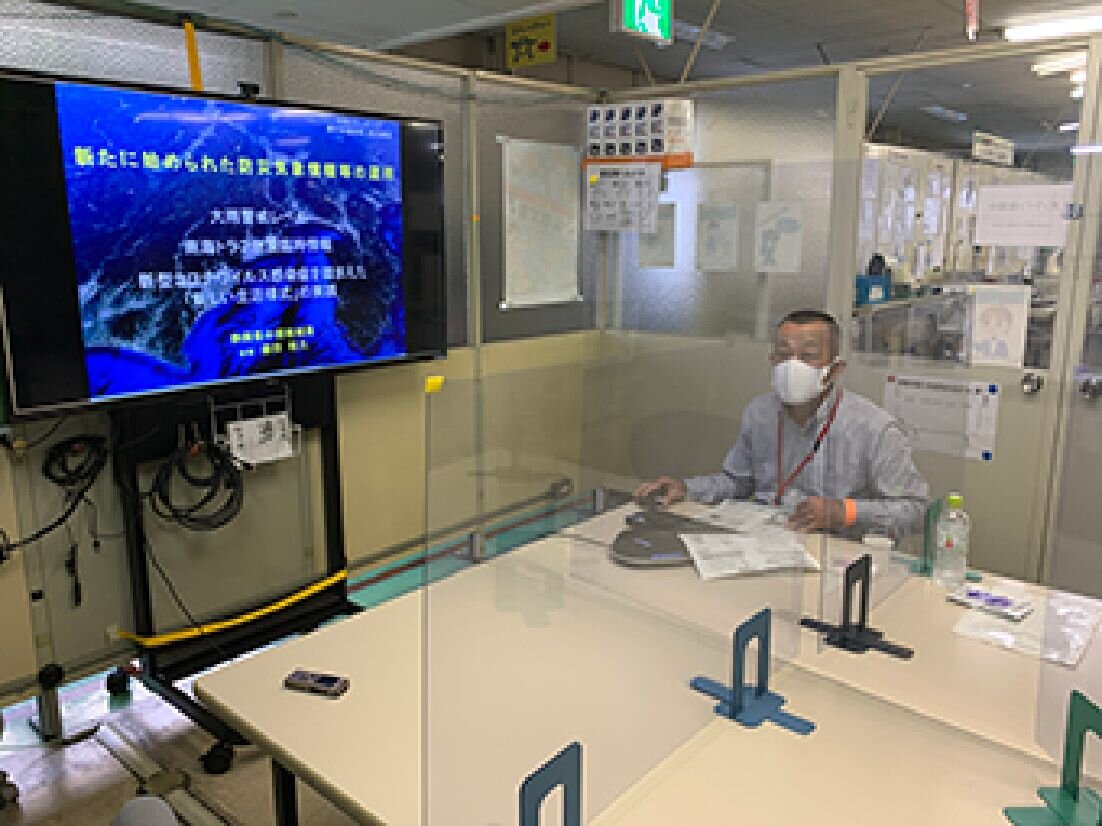Compliance/Risk Management
Basic Approach
KOITO aims to continue being a company that is trusted by all stakeholders and declares in the KOITO Group Corporate Behavior Charter that "we will comply with all applicable laws and regulations and will engage in fair, transparent, and free market competition, as well as proper trade, and responsible procurement," and "in our global corporate activities, we will also comply with international rules and local laws, respect local culture and customs, and maintain sound relationships with government and government agencies." KOITO has identified reinforcement of "compliance" as one of our materiality. To foster an organization and atmosphere to place importance on compliance, the entire KOITO Group is committed to engage in compliance activities.
KOITO enriches and reinforces general risk management to properly identify diversifying and complex risks, prevent risks from becoming materialized, and minimize damage in case problem occurs.
Compliance Management Structure
To strengthen our compliance system, KOITO has established the Compliance Committee, Compliance Promotion Office, Internal Audit Office, and whistle-blowing desk (Corporate Ethics Consulting Desk). The Compliance Committee meets regularly to confirm and follow up on the action plans and results of the Compliance Promotion Office and the Internal Audit Office, the operational status of the Corporate Ethics Consulting Desk, and responses to risks.
Personnel in charge of compliance are also appointed at the domestic and overseas subsidiaries to strengthen compliance and grasp the compliance status in close collaboration. In this way, KOITO promotes compliance-related initiatives in the entire Group.
Reinforcement of Compliance
Fostering Compliance Awareness and Promoting Education
KOITO strives to foster employee awareness of compliance by distributing a portable "Ethics Card" to all employees so that the KOITO Group Corporate Behavior Charter can be a behavior standard for employees. We also conduct an annual Corporate Ethics Survey for all employees to gauge the level of awareness, understanding, and implementation of the KOITO Group Corporate Behavior Charter. Results of the survey are reported to the Board of Directors and Compliance Committee.
According to the results of the FY 2022 survey, awareness of the KOITO Group Corporate Behavior Charter was 97%, and employee's ratio who "act to gain customers' satisfaction and trust," "comply with relevant laws and internal rules," and "respect human rights" all accounted for 100%, maintaining a high level of awareness, understanding and implementation.
Compliance Education
KOITO provides compliance education in the job-rank based and theme-based training in various fields, such as the Antimonopoly Act, the Subcontract Act, and harassment for employees. Compliance training by outside instructors is also provided to Directors, Corporate Officers, Deputies and Managers.
In addition, KOITO also provides compliance education to suppliers. We are asking suppliers to ensure compliance at the annual procurement policy briefing session.
Prevention of Harassment
KOITO regularly conducts harassment surveys for all employees. In the survey, subordinates evaluate the behavior of supervisors (managers such as department managers and section chiefs, as well as management supervisors such as subsection chiefs) in the workplace. Supervisors assess the differences between their perceptions and evaluation results, and work to prevent harassment by formulating and posting "My Pledge to Eliminate Harassment."
Anti-corruption Initiatives
Through establishing the "Antimonopoly Act Regulations" and implementing internal education periodically, KOITO is working to prevent corruption, such as bribery, extortion, fraud, embezzlement, money laundering, conflicts of interest, illegal financing to political parties and facilitation payments.
The penalties imposed in the event of violations of laws are stipulated in our internal regulations.
Nobody in the Group was fined or dismissed for corruption in FY 2022.
Prevention of Anti-competitive Practices
Through establishing the "Antimonopoly Act Regulations" and implementing internal education, KOITO is working to prevent anti-competitive practices, such as market division, price-fixing, abuse of dominant position and dumping.
When KOITO employees come into contact with competitors, we conduct ex-ante and ex-post reviews to ensure that they do not engage in conduct that may violate the Antimonopoly Act.
With the attendance of Audit and Supervisory Board Members, the Internal Audit Department conducts annual audit to departments concerned with the Antimonopoly Act and Subcontract Act, and the findings are reported to the Compliance Committee. If any problems were found during the audit, the details of the improvement are also reported to the Committee.
The penalties imposed in the event of violations of laws are stipulated in our internal regulations.
Nobody in the Group was fined or dismissed for anti-competitive practices in FY 2023.
Whistle-blowing System
KOITO has established "corporate ethics consulting desks" inside and outside the company which allows employees to report or consult on compliance and harassment issues. After investigating all cases reported or consulted, we are taking appropriate measures and report them to the Board of Directors and the Compliance Committee.
When operating the Corporate Ethics Consultation Desk, we are strictly managing information on whistleblowers so that users can report and consult with peace of mind. In addition, we are prohibiting disadvantageous treatment of whistleblowers, and stipulating penalties for its violations in our internal regulations.
Number of consultations (cases)
| FY2018 | FY2019 | FY2020 | FY2021 | FY2022 | |
|---|---|---|---|---|---|
Internal Contact |
22 | 25 | 32 | 36 | 42 |
External Contact |
1 | 0 | 3 | 1 | 4 |
Risk Management Structure
Departments are assigned to risk management, including the implementation of measures to reduce and avoid risks and daily management. The Quality Assurance Department is assigned risks associated with the safety of products, the Procurement Department handles risks in the supply chain, and the Safety Environment Department handles risks of natural disasters. As such, each department assess relevant risks and implement preventive measures. Officers of assigned responsible departments act as the general managers. In addition, training on individual risks is provided to employees.
If risks become actual problems, the basic protocol is to report the incidents to the Board of Directors, the highest decision-making entity of the business administration, and such problems are swiftly and properly handled under the direction of the top administrators.
Natural Disaster Risks
Based on our basic policy "to prioritize human lives and maintain business continuity," KOITO examines disaster control, initial response, and restoration work to find problems and re-evaluate and reinforce response measures based on lessons learned through natural disasters such as the Great East Japan Earthquake, Kumamoto Earthquake, heavy rains, typhoons, and expected damage caused by the Nankai Trough Earthquake.
To control damage from natural disasters, such as earthquakes, KOITO implements aseismic reinforcement of production site buildings, anti-fall measures for facilities and equipment, installation of emergency earthquake notification systems, regular disaster drills including evacuation and firefighting, all-employee safety confirmation drills, and general inspections of the maintenance and management of evacuation routes. KOITO also intends to minimize the damage caused by disasters by hosting lectures on how to check hazard maps and evacuation.
To prevent fire, KOITO makes efforts to reinforce the system to ensure quick extinguishing through thorough management of hazardous materials and combustibles, such as organic solvents, increased installation and rearrangement of fire extinguishing equipment to prepare for fire, and implementation of initial firefighting training.
In addition, on-site inspections on safety, fire, and disaster prevention are being conducted at subsidiaries and suppliers. Subsidiaries in Japan are also mutually inspecting and improving each other's production sites in Subsidiaries Mutual Safety Inspections to improve the safety, fire, and disaster prevention level in the entire Group and the supply chain.

Fire fighting training using fire hydrant

Online disaster control seminar by Regional Management Center of Central Shizuoka
